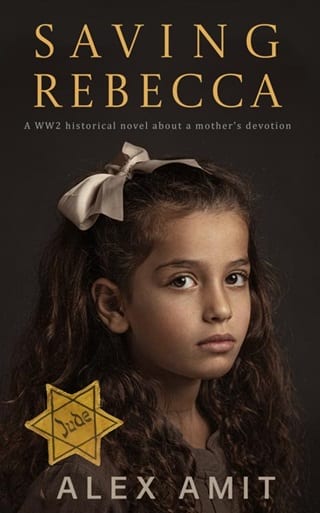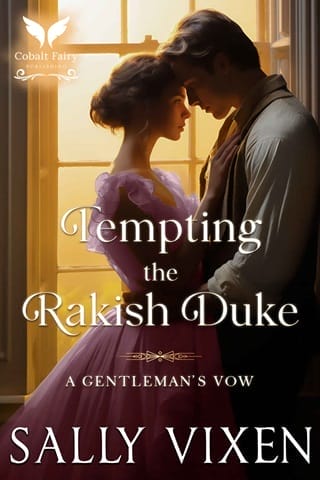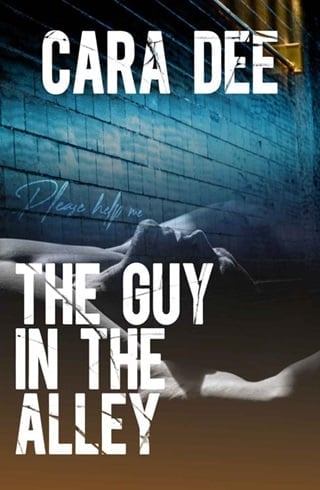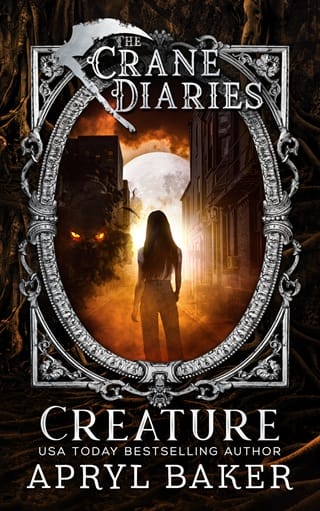15. The Decision
Chapter fifteen
The Decision
Mathéo
I sit down on the wooden pew in the small church and place my hands on my knees. My blue uniform's fabric feels rough on my skin even though I've been wearing it for many years. I look up at the Virgin's statue. I think she's looking back at me. Behind her, on the mural-decorated wall, stands out a yellow star of the morning. The artist who painted it shimmering, so many years ago, probably wanted to give hope to those who'd come and pray here. But I don't know if there's any hope left. I know there's no hope left for the people I guard in the camp. And what about the girl? What do I do with what Sergeant Pascal told me about sending the Jews to Auschwitz?
The church is empty. The curfew will soon begin, and everyone hurries back to their homes. I put my hands together, kneel, and silently pray, stopping only as I hear footsteps and look back .
Father Nicholas slowly approaches and smiles at me, his black cloak moves with his every movement.
"Good evening, Mathéo," he sits down next to me.
"Good evening, Father."
"Is everything okay?"
"Everything is fine. I just came to pray," I answer. I don't know if I can trust him or tell him anything.
"You know Mathéo," he says. "I've gotten used to you no longer coming to my sermons. It's okay," he smiles at me. "I have an agreement with God that your mother comes every Sunday to pray for both of you."
"She's a good woman. She raised me all by herself," I say back.
"Yes, your mother is a good woman," he sighed. "And it's hard for women in times of war. But I have a feeling that's not why you came here to pray," he places his hand on my shoulder.
"No, it isn't," I whisper.
"Would you like to tell me the reason, or would you like to keep it in your prayer only?"
"They're sending them to a horrible place," I tell him, quietly.
"The Jews from the camp?"
"Yes," I nod.
"The Nazis have been here for over two years, and the rumors are only getting worse."
"These are not rumors, Father."
"If only we could help them, but the Nazis are our occupiers, and they're cruel. You and I both know that the black cars of the Gestapo are roaming the city searching for Jews and traitors. "
"There's one girl there," I tell him after a moment, "without her mother, the mother was sent away."
"And what about that girl?"
"It doesn't matter, Father. What about all those other people in the camp?"
"You know, Mathéo, there's a saying in Judaism: ‘whoever saves a life, it is as if he saved the whole world'," I feel his warm hand on my shoulder.
"And how can I help one girl?" I look up at the Virgin and the yellow star painted on the wall behind her.
"Sometimes God has power, and not just prayer," Father Nicholas says. "I've known you since you were born, and I know I can trust you," he pauses for a moment before he keeps speaking. "Sometimes God's messengers have powers, too. There are those among us who don't care, but there are the ones who're trying to help. I told you last time you came to me, I'm here to help, and I've known you long enough to know you need help."
"I need help saving one girl," I tell him and turn to look at him, into his blue eyes.
A few days later, I look at the blue sky. They're too beautiful for this small train station full of people.
Along the track stands a freight train. The black locomotive carries ten brown-painted wooden cars, usually used to transport cattle. The car's big doors are opened to the platform full of prisoners from the camp waiting to board them. Today is my day to escort the transport from the camp to the station.
Despite the pleasant autumn day, the people are sweating from walking all the way from the camp to the train station, some carry suitcases containing all their possessions or supporting a family member. I feel a lump in my throat as I see an older man hobbling with a cane onto the platform.
"Achtung. Everyone, get into the cars," a Nazi soldier shouts into a megaphone he's holding. "Schnell, fast," he keeps shouting. Recently, more soldiers in black uniforms arrived at the Germans' barracks. Shipments to the East are also increasing. Father Nicholas told me to come back next week. He'll find out what can be done.
The men and women begin to enter the carriages at a slow pace.
"Schnell, fast," the Nazi soldier continues to shout through the megaphone. The cars fill up, and the platform empties. Another soldier passes from one car to another and closes the large wooden doors. His hand turns and closes the large metal bolt that locks the door from the outside. The people standing inside the freight cars look at the blue sky one last time before the door slams in their faces, and they disappear behind the heavy wooden doors.
Only a few French policemen and Nazi soldiers remain standing on the empty platform. In the distance, at the end of the platform, I can make out Captain Becker, standing in his black uniform, watching us. Are they planning to send everyone to the East soon?
"I think we're done here for the day," Sergeant Pascal tells me as the Nazi soldier closes the bolt of the last car and locks it with a bang. "Let's go. We can start heading back to the camp," he calls to the other policemen standing along the platform. A different German soldier whistles and signals with his hand, and the locomotive fills the sky with black smoke, and starts pulling the cars forward.
"Will it last much longer?" I ask him as I watch the train slowly pull away from the station. How much time do I have left to try and get that girl out of here?
"Do you think they'll let this go on much longer? He's now personally coming to watch the trains," Sergent Pascal points at Captain Becker. "Their only problem now is getting more train cars. After all, transporting so many Jews to the East is damaging their war effort," he grins.
"And what will they do after they send them all?" I ask him as we walk down the empty platform. I bend down and pick up a woman's beret that fell off one of the prisoners and remains lying on the concrete.
"Are you worried? They'll make sure to fill it with prisoners of war from the East, with American pilots who were shot down and captured. You don't need to worry about them. They'll find someone to bring here after they cleanse France of Jews. We'll always have work."
"Excellent," I say, feeling the lump in my throat. The train had already disappeared from the station, and the black cloud had also gone, leaving the sky blue once again.
"Mathéo," Sergeant Pascal says as we walk to the police pick-up truck waiting to take us back to the camp. "Do you remember that motherless girl, the one we bet on? "
"Yes, I remember," I answer, all tense. Did he find out about me? I keep matching his pace. "I lost the bet," I tell him, trying to hide the tension in my voice.
"Yes, we all lost a lot of money on her. The little Jewess refuses to die. She somehow manages to get food," he tells me, taking out a pack of cigarettes from his uniform shirt pocket. "Do you want one?" He offers it to me.
"No, thanks," I reply. Does he suspect me? "Surely someone feels sorry for her and helps her," I add.
"Yes, of course someone's watching over her," he says, thoughtfully, "but that's not the point. I don't care if someone's helping her."
"So, what's the matter with her?" I ask. I have to choose my words carefully.
"I want you to take care of her."
"What does that mean?" I place my hand on my holster, feeling the warm leather in the heat of the afternoon sun.
"I bet on her for two more days. I put a lot of money on her," he blows the cigarette smoke in the air. "I want to win. I want her to be kaput in exactly two days. Until then, I want her to stay alive."
"What do you want me to do?" I ask him and look back. The other policemen are at a distance from us. They walk and talk to each other.
"I want you to take care of that," he puffs on his cigarette. "You owe me. I got you the medicine from the Germans, back then, when your mother was sick. You owe me." He stops and looks at me seriously, his dark eyes examining me.
"I'll take care of it," I look back at him. I can't lower my eyes, "I'll make sure she's kaput in two days."
 Fullepub
Fullepub 



